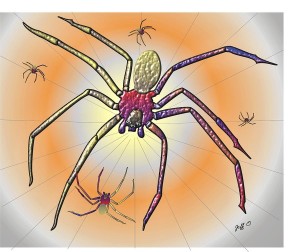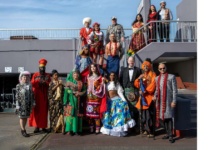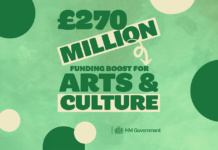Several cultures the world over have developed social constructs with which their world view, beliefs, mores, culture, and ethos are passed on. These are reflected in the stories, poetry, cultures of tales and ancestral histories, worship, and the rules which society accepts to order roles and functions.
As simple as the encouragement to throw a coin into a pool, fountain, or a particular river is believed to bring about god fortune. In some instances, one is required to make a wish to occasion the manifestation of an expectation. There are a host of river-bed or river-side shrines of this type all over Africa of which much has been written in poetry, oral literature, and contained in myths just as much as you will have in the Greek or Roman mythologies. Christopher Okigbo, arguably one of Africa’s iconic poets, uses the opening lines ‘Beside you I stand Mother Idoto’. Just as Francis Selormey portrays this in his work, The Narrow Path, when his hero embarks on a fortune-searching journey into the city from the coastal society of Keita.
But a very clear proof of this wealth of traditional knowledge and culture which served as a major means to influencing socio-cultural education and accepted behaviours is the use of animals in African folklore. Depending on the culture, one is likely to find shifts in methodology but it all boils down to the use of non-written or better still oral literature.
Perhaps the greatest beauty of this form of literature is the affinity it teaches between man and all other creatures. The understanding of harmony among all creatures, the role of man amongst them, the interdependence that is prescribed for peace and the unravelling and explication of incidences and phenomenon reinforces the concept of universality and the dichotomy between the created and the creator and the links that exist specifying goodwill.
That was the instrument of the character of the tortoise known in various languages but Ijapa in Yoruba language and another Ananse (spider) among the Ashantis of Ghana. These characters have had a lot of their natural traits explained in the realisation of their virtues or vices such that they are real and credible figures of teaching morals in the traditional school of what is accepted or rejected in society. Children are the first pupils and every altruism etched into the impressionable minds.
So while Ijapa becomes a ready villain of considerable wit and wile, he is yet loved and admired for the being that he is and the positivity of his essence. Ananse’s size is so little compared to what he is able to do yet there is greater understanding of his nature without any ‘westernised’ study of its biology.
So myths are created and stories abound in hundreds about the exploits of the tortoise and the spider across cultural plains enough to dwarf any television drama series when compiled. But more significant is the teaching and forming aspects of this traditional method of tutelage which shapes the minds and attitudes of peoples quite early in their lives to conform with the elemental and super-elemental universe that Man has to steward.
Can any difference therefore be between that excellent age and now? The age of technology idn this regard has done next to nothing but ‘desecrate’ the beauty and natural candour of that period by hypocritical blackmail and condemnation. In its stead is a replication, in principle, of what was with technologically-tainted concepts and names coated with every façade of the ‘educated’ in a mad rush through decay, vice, and destruction. Ijapa’s exploits are similitudes of what is now known as the Ninja turtles and the use of wit, intelligence etc are replaced by technological creations less of wit and more of skill, less of nature and more of artificiality, less of simplicity and more of complexity, among many other comparisons.
The world of the natural still holds its allure and key for the harmonious survival of the human race. It is not just about the purity of nature which the ‘green campaign’ sings but also a ‘return to Eden’ for which the world of literature is the best propaganda machine starting from paradise in Africa.










